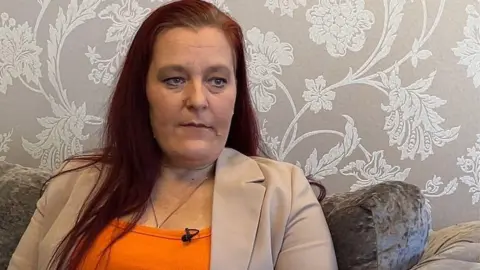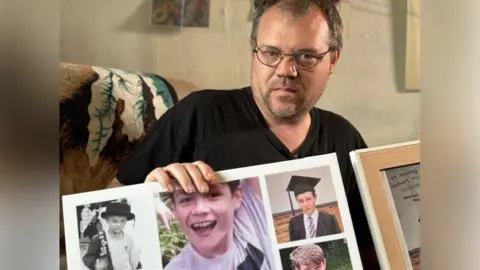Water safety advice not reaching kids - campaigner
 BBC
BBCA water safety campaigner says advice is not reaching the children who need it the most, after a boy drowned at the weekend.
Rebecca Ramsay, whose son Dylan drowned in 2011, said information was often shared on the news but not in places children were visiting.
Her comments come as a teenage boy drowned and a second boy remains in a critical condition after getting into trouble in the River Tyne in Northumberland.
Ms Ramsay has welcomed the introduction of water safety on the national curriculum and said the lessons should "help prevent future tragedies".
Following her son's death, Ms Ramsay, who is from Lancashire, became a water safety advocate and visits schools to educate children.
"We do advocate as much as possible, but how many 15 and 14-year-olds are picking up a newspaper?" she said.
"Now I actively go into schools, so I do actively teach children, but I can't get into every single school. It is very difficult."
Water safety was officially added to the national school curriculum last week after she campaigned for the change for 13 years.

On average, 400 people drown in the UK each year and another 200 people take their own lives in water, according to the National Water Safety Forum.
On Saturday, a 14-year-old boy drowned in the Tyne, near Ovingham in Northumberland. A 13-year-old remains in a critical condition.
Carl Hattersley's 13-year-old son Robert died in the same stretch of water in 2022. He cofounded the Robert Hattersley Foundation to campaign for river safety.
He said more deaths would happen again and has called for "safety patrols" in the area, along with more water safety education in schools.
"Let's get people aware, of all ages, like these young teenagers," he said.
Water safety advice
Firefighter Sam Metalli-Haward urged people to plan their swimming trips to stay safe.
"Make sure you know your locations so if you need to dial 999 they know exactly where you are," she said.
Other safety advice includes:
- Checking the water for hidden dangers and cold water
- Swimming with a friend who can keep a look out
- Swimming near lifeguards
Sam Johnstone, from the RNLI, said those who found themselves in trouble in the water should try and float.
"Lie on your back, spread out your arms and legs, and tilt your head up and out of the water to keep your airways clear and gently move your hands and feet to help you float," he said.
Barry Ellis, from Herts Boat Rescue, said people who saw someone in trouble should try and help, but should not get in the water.
"Keep your distance from the water and throw them something that floats and make sure they get to the side," he said.
If those in the water remained in danger, people should call 999, he said.
Follow BBC North East on X (formerly Twitter), Facebook and Instagram. Send your story ideas to [email protected].
